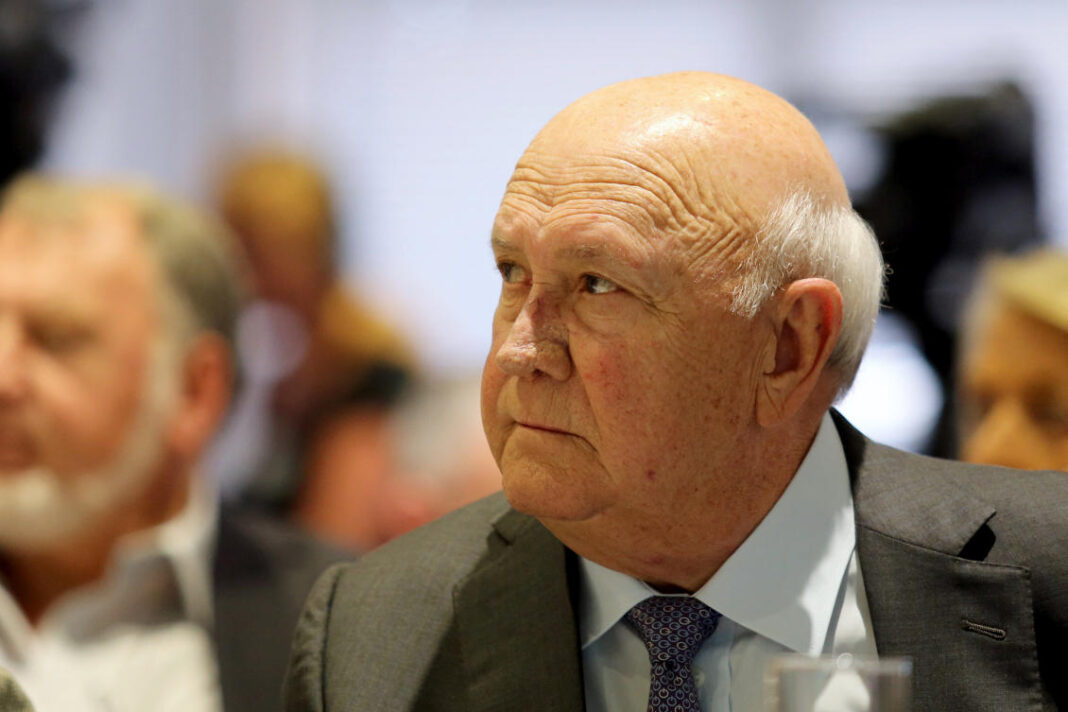JOHANNESBURG: South Africa’s last white president FW de Klerk died on Thursday aged 85, having helped steer the nation to democracy while never fully owning up to the horrors of the apartheid past.
He died at home early Thursday after a battle with cancer, his foundation said in a statement.
De Klerk freed Nelson Mandela from prison, unbanned political parties, and later shared a Nobel Peace Prize with the anti-apartheid icon.
Yet he never found a place in the democratic South Africa, and became seen as an apologist for the torture and killings committed by the segregationist regime.
His testimony had been demanded in several current cases seeking answers over past atrocities.
But in a surprise move, he tendered an apology — in a posthumous video message.
“I without qualification apologize for the pain and hurt and the indignity and the damage that apartheid has done to black, brown and Indians in South Africa,” he said in the video released by his foundation.
The Nelson Mandela Foundation captured the sentiments of many, saying: “De Klerk’s legacy is a big one. It is also an uneven one, something South Africans are called to reckon with in this moment.”
President Cyril Ramaphosa noted that De Klerk “played a vital role in our transition to democracy.”
British Prime Minister Boris Johnson, one of the few foreign leaders to quickly offer condolences, hailed De Klerk’s “steely courage and realism in doing what was manifestly right and leaving South Africa a better country.”
The office of one of the harshest critics of apartheid, Archbishop Emeritus Desmond Tutu, said “the former president occupied a historic but difficult space in South Africa.”
De Klerk’s appearance before the Truth and Reconciliation Commission, which uncovered the atrocities of the white-minority regime, met with Tutu’s chagrin.
At the time, Tutu expressed “disappointment that the former president had not made a more wholesome apology on behalf of the National Party to the nation for the evils of apartheid,” his foundation said.
Julius Malema, the 40-year-old leader of the leftist Economic Freedom Fighters, didn’t hide his feelings. “Thank you God,” he tweeted, followed by five dancing emojis, echoing the sentiments of many younger South Africans on social media.
But opposition Democratic Alliance leader John Steenhuisen said “rather than dividing our country, may his passing and his memory make us even more determined to work toward a united South Africa.”
He said De Klerk’s contribution to South Africa’s transition to democracy “cannot be overstated” while his predecessor Tony Leon likened De Klerk to Mikhail Gorbachev.
Had he “not relinquished power in 1994, likely SA would be Syria or Venezuela today,” Leon tweeted.
De Klerk sparked fury last year when he denied apartheid was a crime against humanity, despite the UN declaring it such.
“The idea that apartheid was a crime against humanity was and remains an agitprop project initiated by the Soviets… to stigmatize white South Africans,” he said.
Ramaphosa reacted angrily, telling lawmakers that the comments were “treasonous.”
De Klerk later apologized and retracted the controversial statement.
Born in Johannesburg into a family of Afrikaners, a white ethnic group descended mainly from Dutch colonizers, his father was an apartheid senator who served briefly as interim president.
After studying law, De Klerk was elected to parliament as a member of the National Party that instituted apartheid.
De Klerk held several ministerial positions before he became president in 1989, a position he held until he handed over the reins to Mandela after the first democratic elections in 1994.
De Klerk later said freeing Mandela had “prevented a catastrophe.”
His funeral dates are yet to be announced.
He is survived by his wife Elita, children Jan and Susan, and grandchildren.




